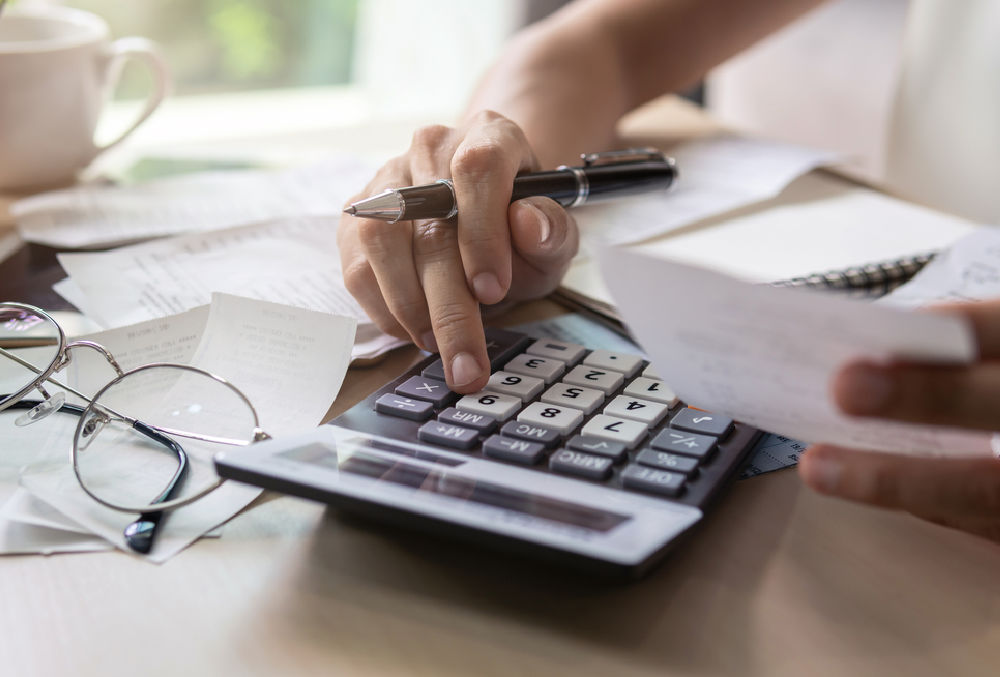If you’re struggling with overwhelming tax debts, you should consider all of your financial options, one of which is filing bankruptcy Chapter 13. With Chapter 13, you can pool all of your debts, including some types of tax debts, into a three-to-five-year repayment plan. You may not be able to pay off the entirety of your debts in your repayment plan, but you can make your debts more manageable and reduce or eliminate tax liens. Here’s what you need to know about filing Chapter 13 for tax debt relief.
Does Bankruptcy Clear Tax Debt?
Some debtors can eliminate tax debts by filing bankruptcy Chapter 13 or Chapter 7, but it’s important to know what tax debts are eligible for discharge. It’s also critical to remember that you should never assume that you’ll be able to discharge your tax debts, so it’s best to avoid missing payments to the IRS when possible.
In order to discharge your tax debt, the debt must be at least three years old, and it has to be income tax debt. You also need to have filed a tax return for the debt at least two years before declaring bankruptcy. Additionally, the IRS needs to have recorded the debt at least 240 days before you file for bankruptcy.
Although Chapter 13 is the most common filing method for individuals to overcome tax debts, some can benefit from filing Chapter 7. With Chapter 7, a court-appointed bankruptcy trustee liquidates your non-exempt assets in order to pay back your creditors, including the IRS, and you receive a discharge on eligible debts once the liquidation process concludes.
If you have non-exempt assets that you’re wishing to keep or don’t pass the Chapter 7 means test, you’ll need to file through Chapter 13. Chapter 13 can make your non-dischargeable tax debts more manageable.
How Chapter 13 Bankruptcy Can Help with Your Tax Debts
Before filing for Chapter 13 bankruptcy, you’ll need to find out how much you owe the IRS. You need to contact the IRS and have them review your tax returns, and you need to ensure that you’re up to date with your tax filings. The IRS should provide you with your tax records, so you’ll know the age of your debts and whether you failed to file in a previous tax year. You’ll need to file your missing tax returns in order to declare bankruptcy.
Learning how much you owe and the age of your debt is an important first step in overcoming your back taxes. From there, you can determine whether you should go ahead and file for Chapter 13 or wait to increase your likelihood of discharging some of your debts. You’re required to pay back all tax amounts that are less than three years old, but if you have income tax debt that’s older than three years, you may only need to pay back 10% or none at all. However, if a tax lien is placed against you, then what was once a dischargeable tax debt is once again a debt that must get pain in a Chapter 13 plan. Some debtors choose to wait before filing in order for their existing tax debts to age to at least three years. That said, there’s a great deal of nuance in bankruptcy law, so you should consider contacting a Chapter 13 bankruptcy attorney to help you determine when to file.
Chapter 13 Bankruptcy Tax Debt Relief
When you file for Chapter 13, you present a three-to-five-year repayment plan to the bankruptcy court. This repayment plan pools your existing debts in order to pay back creditors, including the IRS. Those filing for Chapter 13 usually don’t pay off the entirety of their debts, but they can break down a sizable amount and discharge eligible tax debts.
Your repayment plan will depend on your financial situation as well as your other debts. Repayment plans are supposed to be realistic, and the amount you’ll need to pay for each installment will depend on your income, expenses, disposable income, and assets.
Because your repayment plan is largely based on your disposable income, you’ll need to avoid excessive spending that could jeopardize your ability to make on-time payments.
Once you complete your Chapter 13 repayment plan, you can discharge eligible tax debts as well as unpaid interest and penalties. Many Chapter 13 filers end up having to only pay back a portion of their tax debts to the IRS, and some are able to avoid paying back the IRS entirely.
Completing a Chapter 13 repayment plan doesn’t necessarily mean that you’ll be able to pay back the entirety of your tax debts, but you’ll likely be able to greatly reduce what you owe.
Contact an Indianapolis Bankruptcy Attorney
If you are considering filing for bankruptcy or are struggling with back taxes, consider contacting a bankruptcy attorney. For legal assistance in Indianapolis and surrounding counties, contact the lawyers at Sawin & Shea, LLC. You can request to schedule a FREE case consultation online or by calling our office at 317-759-1483.



